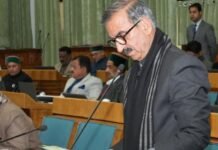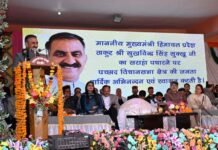The Aam Aadmi Party (AAP) in Punjab has embarked on a significant organizational restructuring, announcing a fresh slate of state vice presidents, general secretaries, secretaries, and district presidents. This comprehensive overhaul is being framed by the party as a strategic move to fortify its grassroots presence and enhance its outreach across the state. However, the reshuffle arrives amidst persistent and mounting criticism from opposition parties, who allege an excessive and disproportionate influence of AAP’s national convener and former Delhi Chief Minister, Arvind Kejriwal, in the day-to-day governance of Punjab.
The newly appointed leadership roles aim to inject fresh energy and a more localized approach into the party’s machinery. According to party sources, the restructuring involved careful consideration of regional representation and leadership capabilities, with five state vice presidents, nine general secretaries, and secretaries for all 13 Lok Sabha constituencies, along with 27 leaders across 23 districts, being assigned responsibilities. The party has even bifurcated major urban centers like Jalandhar, Ludhiana, Amritsar, and Patiala into two distinct organizational units to ensure more focused administration. Notably, five MLAs, including Manjinder Singh Lalpura (Majha), Dr. Sukhwinder Sukhi (Doaba), Dr. Amandeep Kaur (Malwa Central), Dr. Charanjit Singh (Malwa East), and Jagdeep Singh Kaka Brar (Malwa West), have been elevated to state vice president positions, indicating a blend of legislative and organizational responsibilities. The appointments, according to a party spokesperson, are not merely a reshuffle but a “resolution” to instill an organized and honest political ethos in every village and family.
While the AAP leadership, including Arvind Kejriwal and Chief Minister Bhagwant Singh Mann, has publicly affirmed that every new team member will serve as a responsible officer and a bridge between the government and the public, the opposition remains unconvinced. The criticism largely revolves around allegations that key decisions, ranging from bureaucratic transfers to significant financial matters, are being closely vetted and, at times, dictated by Kejriwal from Delhi. Reports from political analysts and opposition leaders suggest that prominent Delhi AAP figures are not just advising but actively guiding various state departments, leading to a perception of a “remote control” governance model. This narrative of external influence has been a consistent point of attack for rival parties like the Congress and the Shiromani Akali Dal (SAD), who argue that it undermines the autonomy of the Punjab government and the mandate given by the state’s electorate.
The timing of this organizational revamp is also strategic, coming shortly after the party’s performance in the Delhi Assembly elections and ahead of the 2027 Punjab Assembly elections. Some political observers suggest that the changes are part of a broader “Mission 2027” to consolidate AAP’s hold on Punjab. Manish Sisodia, former Delhi Deputy Chief Minister and AAP’s Punjab affairs in-charge, reportedly played a significant role in these appointments, basing them on extensive field surveys. His public statement on social media platform X underscored the magnitude of this change, calling it the “biggest change in AAP Punjab’s organisation to date” and emphasizing that the party is preparing for 2040, not just 2027, envisioning itself as a people’s movement.
However, the persistent narrative of Delhi’s pervasive influence continues to be a sticking point. Opposition parties frequently question why decisions that impact Punjab are seemingly orchestrated from the national capital, fueling sentiments of regional pride and autonomy. While AAP leaders counter that central leadership guidance is a strength and standard practice in many national parties, the intensity of the criticism suggests that this perception of undue influence remains a significant political challenge for the ruling party in Punjab. The success of this organizational overhaul, therefore, will not only depend on its internal effectiveness but also on how successfully the AAP can counter the narrative of Delhi’s alleged dominance and convince the Punjabi electorate that its governance is truly indigenous and responsive to local needs.
#AAPPunjab #OrganizationalRestructuring #ArvindKejriwal #BhagwantMann #PunjabPolitics #DelhiInfluence #GrassrootsStrengthening #Mission2027 #PunjabGovernance #PoliticalStrategy





